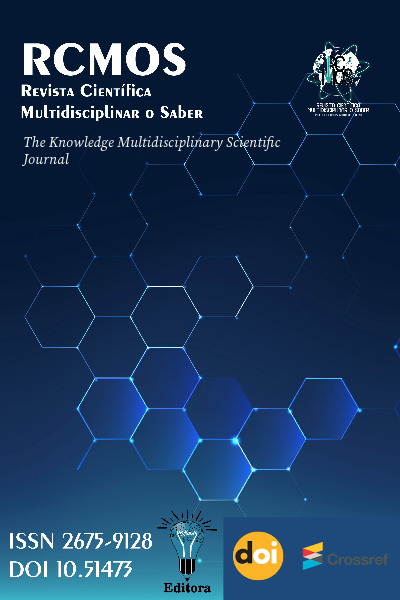Euthanasia: a digine death
Euthanasia: a digine death
DOI:
https://doi.org/10.51473/rcmos.v1i2.2021.28Keywords:
Dignity, Right, DeathAbstract
Objectives: The present study aims to conduct a theoretical analysis about the right to a dignified death, based on the principle of human dignity and ethics at the end of life. Some very important concepts and procedures for understanding the topic will be presented, including euthanasia, dysthanasia, assisted suicide and orthothanasia, in addition to the autonomy of will that must be taken into consideration for patients who are in the terminal stage. Method: The methodology used in this article is for qualitative and bibliographic research on the topic in question. Results: Death with dignity in cases of terminally ill patients is a subject that deserves more attention, since in some situations there is more-to do, as it is known that the patient will not survive. It is important to emphasize that that person who is in full mental health and has made the decision regarding his death in a free and responsible manner, must have his will (desire) taken into account, as he is in those uncomfortable (terminal) situations, in addition to suffering, of anguish, also affects their morale. Conclusion: The subject of euthanasia is a very old one and the population is afraid to talk clearly about death, because for some people it is the end point in itself. Thus, they leave the subject on the subject too ignored. But the State must, through concrete cases with terminally ill patients, analyze and let the patient or family choose to die, a decision that should not be seen as disrespecting the Constitution.
Downloads
References
BARROSO, L. R.; MARTEL, L. de C. V. A morte como ela é: dignidade e autonomia individual no final da vida. Panóptica 19, 69-104, jul./ out. 2010. Disponível em: http://www.panoptica.org/seer/index.php/op/article/view/Op_5.2_2010_69-104/293. Acesso em: nov. 2017.
BECCARIA, C. Dos Delitos e das Penas. Tradução J. Cretella Jr. E Agnes Cretella. 5. ed. São Paulo: Editora Revista dos Tribunais, 2011.
FARIAS, E. P. Colisão de direitos: a honra, a intimidade, a vida privada e a imagem versus a liberdade de expressão e informação. 2. ed., atual. Porto Alegre: Sergio Antonio Fabris Editor, 2000.
MARTINEZ, S. R.; BELO S. Z. Os pacientes terminais e o princípio da dignidade da pessoa humana. civilistica.com. a. 4. n. 1. 2015. Disponível em: http://civilistica.com/wpcontent/uploads/2015/08/Martinez-e-Belo-civilistica.com-a.4.n.1.2015.pdf. Acesso em: nov. 2017.
MARTINS, M. S. M. Direito à morte digna: Eutanásia e morte assistida. Âmbito Jurídico, Rio Grande, XIII, n. 83, dez. 2010. Disponível em: http://www.ambitojuridico.com.br/site/index.php?n_link=revista_artigos_leitura&artigo_id=8
Acesso em: nov. 2017.
MORAES, A.de. Direito Constitucional. 25. ed. São Paulo: Atlas, 2010.
NOGUEIRA, P. L. Em defesa da vida: aborto, eutanásia, pena de morte, suicídio, violência/linchamento. São Paulo: Saraiva, 1995.
REALE, M. O Direito como experiência: introdução à epistemologia jurídica. 2. ed. São Paulo: Saraiva, 1992.
ROXIN, C. Estudos de Direito Penal. Tradução de Luís Greco. 2. ed. Rio de Janeiro: Renovar, 2008.
SCHAEFER, F. Bioética, Biodireito e Direitos Humanos. In: MEIRELLES, J. M. L. de. (Coord.). Biodireito em discussão. Curitiba: Juruá, 2007, p. 33. Acesso em: dez. 2017.
VILLELA, J. B. Variações impopulares sobre a dignidade da pessoa humana. Superior Tribunal de Justiça: doutrina. Edição comemorativa. São Paulo, 2009
TARTUCE, F. A questão do testamento vital ou biológico – primeiras reflexões. In: CARVALHO NETO, I. de (coord.). Novos direitos após seis anos de vigência do código civil de 2002. Curitiba: Juruá, 2009
ZAFFARONI, R.E.; BATISTA, N. Direito Penal brasileiro. Teoria do delito: introdução histórica e metodológica, ação e tipicidade. v. 2, 2. ed. Rio de Janeiro: Revan, 2010.













